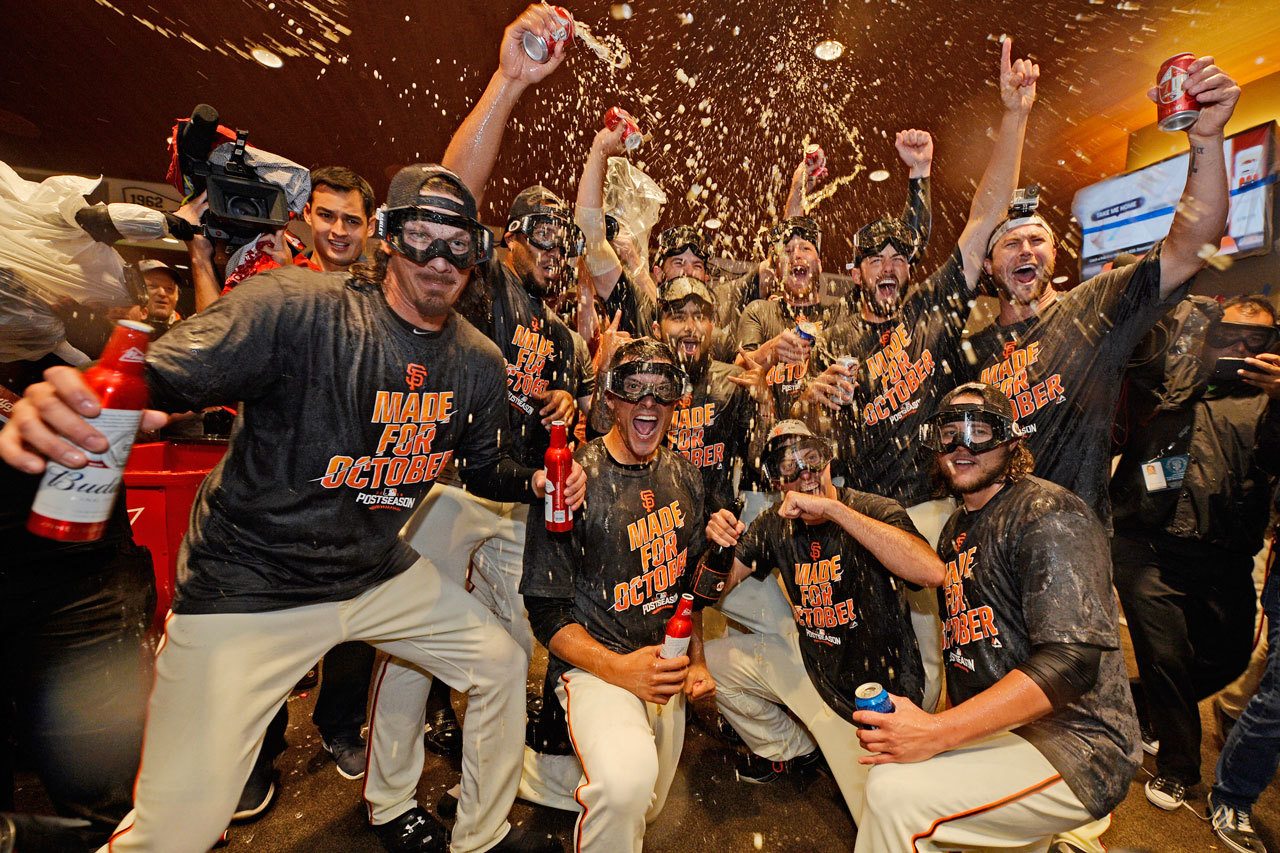At its core, the idea of one game shaping the perception of an entire season runs contrary to the grand design of baseball. To distinguish truth from fluke, the sport depends upon time.
While no one bats 1.000 through the slog of a summer, it is often done in a single game, when anything is possible.
Such is the unusual intrigue that will surround Citi Field tonight, when the Mets host the Giants in the National League wild-card game.
“It’s as close to baseball being like football as you can get because of all the intensity,” said Mets infielder Kelly Johnson, a veteran of a winner-take-all game in 2013 as a member of the Rays.
To secure a wild card, the Mets survived a never-ending wave of injuries, while the Giants endured one of the worst second-half collapses in the last 50 years. But in a single game, none of that baggage matters.
“You throw all the statistics out the window,” Johnson said, reciting a tired cliche that is oddly applicable now.
In baseball, so many events unfold over such a long period of time, it’s possible to cobble them together for the sake of greater understanding. From the precise speed of a wicked liner off the bat, to the spin rate of a wipeout curve out of the hand, it’s all measured. The effort never has been more sophisticated or more in depth.
Most clubs have assembled teams of people to make sense of all that data, hoping to turn it into a weapon. But those insights can lose their power in a one-game scenario, in which they are overmatched by the unpredictability of chance. In those situations, it’s wisdom as old as stirrup socks and tobacco juice that carries the day.
A team is only as good as its starting pitcher, which adds yet another layer of mystery to Wednesday’s game, with Noah Syndergaard and Madison Bumgarner set to collide.
Much has been made of Bumgarner, who has the well-earned reputation of being perhaps the best big-game pitcher in baseball. His last postseason appearance came in 2014, when he tossed five shutout innings in relief to lift the Giants past the Royals in Game 7 of the 2014 World Series.
The Giants have won eight straight elimination games, precisely with the situation they face Wednesday. But they will face no slouch.
“For me, it starts on the mound, like it always does,” Mets manager Terry Collins said. “If Noah pitches like he can, we’ll do just fine.”
Syndergaard, 24, proved his mettle last October when he mixed brashness with raw power to help the Mets win the pennant. In the World Series, he was the only Mets pitcher to win a game. It came after beginning Game 3 with his tone-setting buzzing of Alcides Escobar.
“Well, it’s the big leagues, and you’re going to face great pitching in the postseason,” Collins said. “I know that they’re in their clubhouse saying, ‘Oh wow, we’ve got to face Syndergaard.’ So it should be a great game.”
That the game will take place at Citi Field came as a relief to the Mets, who insist that the home field will be to their advantage, even if wild-card history may show otherwise.
“One play, one pitch, can change the whole outlook of the thing, and that’s so true,” Mets right fielder Jay Bruce said. “I think we have a group of guys that are ready for it, that don’t get overwhelmed by situations and all that.”
Although he didn’t mention it specifically, Bruce was standing in right field for the Reds in the 2013 NL wild-card game, when a rattled Johnny Cueto dropped the ball as he prepared to deliver a pitch. It came after a sold-out crowd at Pittsburgh’s PNC Park jeered him through the early innings. When the Pirates’ Russell Martin smacked a homer off Cueto in that at-bat, the moment passed into lore, proof of the supposed power of home field.
“Being in Citi Field, for us winning the home field, it can’t be stressed enough,” Johnson said. “That’s a big swing and advantage for us, not having to fly across the country, too.”
It is not as pronounced as it is in other sports, but home-field advantage indeed exists over the course of a long season. However, in another example of the funhouse mirror effect that comes with one-game situations, that advantage has yet to show up in the wild card.
The second wild card was added in 2012. Since then, the home team has won only twice in eight wild-card games. It’s yet another reminder that in one game, anything can happen.



